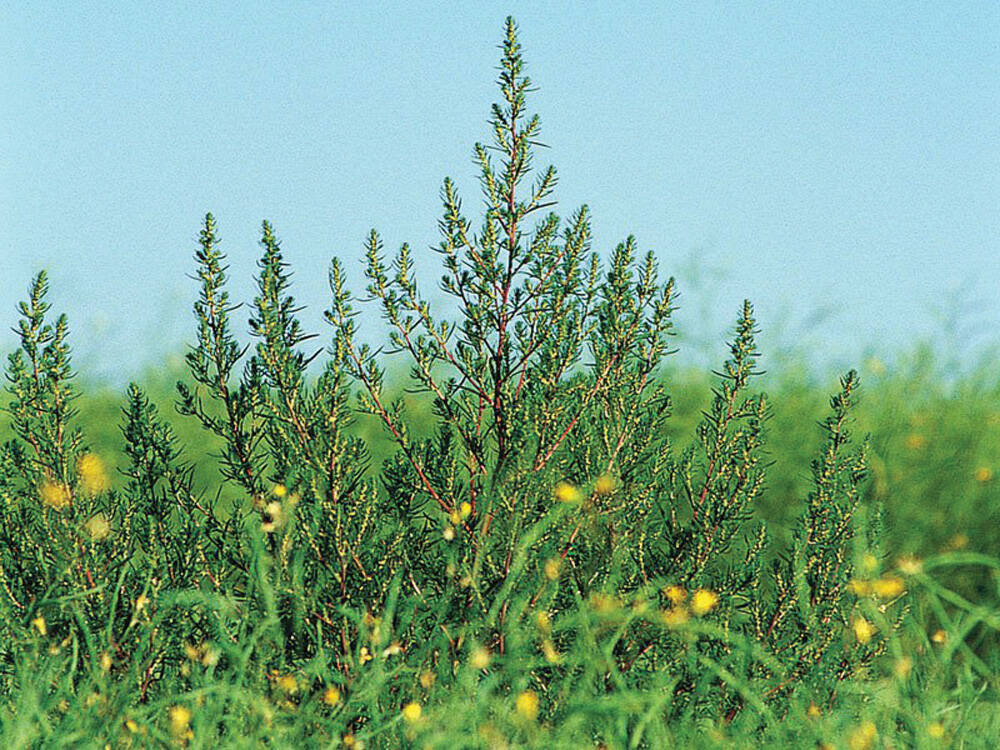As its quarterly profits drop well back from previous record highs, the world’s biggest fertilizer player by capacity says it “will continue to be a patient company” and wait out farmers’ pent-up demand.
Potash Corporation of Saskatchewan (PotashCorp) on Thursday posted net income of $187.1 million on $856 million in sales (all figures US$) for its second quarter (Q2) ending June 30. That’s well down from its year-earlier Q2, when it posted a then-record quarterly profit of $905.1 million on $2.62 billion in sales.
Read Also

FMC Canada unveils 2026 crop protection roster
FMC Canada’s crop protection lineup for 2026 will include four products marketed for control of kochia.
“We faced the most significant deferral of demand our industry has ever seen, yet remained steadfast in our commitment to operate with a long-term view,” Bill Doyle, the Saskatoon-based company’s CEO, said in a release.
“We have been and will continue to be a patient company, preparing for the strong demand that we expect will follow current conditions and protecting the value of our core assets for the future.”
Potash buyers continued to operate “conservatively” in PotashCorp’s Q2, “carefully managing cash in a tough economy and waiting for price definition,” the company said. Potash prices moved lower but not as significantly as those of phosphate and nitrogen.
In North America, estimated potash applications for the fertilizer year ending June 2009 declined by the largest amount on record, down about 40 per cent on a year-over-year basis, PotashCorp said.
Within the company, potash sales dropped 86 per cent from the same period last year. Cutting production rates to meet slowed demand, PotashCorp said it took a total of 50 shutdown weeks across all its potash operations during Q2, up from just two weeks in the year-earlier period.
Realized prices for PotashCorp’s solid, liquid and feed phosphate products were below 2008 Q2 levels by 69, 64 and 32 per cent, respectively.
Its total nitrogen sales volumes were six per cent lower than in the second quarter of 2008 as its U.S. operations slowed to 80-90 per cent of capacity. Ammonia and urea prices dropped 50 and 48 per cent, respectively, from PotashCorp’s 2008 Q2; nitrogen solutions prices were down 52 per cent.
“Unsustainable practices”
In its financial outlook, PotashCorp continued to warn that “inadequate nutrient replacement to soils in all major agricultural regions” has created “a void that must be filled.”
In some regions, the company said, “nutrients resident in the soil and exceptional growing conditions can temporarily distract attention from this underlying issue, but unsustainable fertilizer practices cannot continue if the world’s need for food is to be met.”
PotashCorp sees the “imminent need” for crop nutrients as bringing “much-needed clarity to nutrient markets.”
For example, it cited recently announced contracts between major potash suppliers and India’s fertilizer buyers as demonstrating “customer understanding of the premium value and very different long-term supply/demand fundamentals for potash.”
India’s recent potash settlements are at a level nearly triple PotashCorp’s realized offshore prices of just three years ago, the company said.
“While these prices are 26 per cent below the record contract prices of last year, historical and relative context is important: this is one of the worst economic downturns we have ever seen, and we have just exited a fertilizer year in which global potash shipments were more than 30 per cent lower than the previous year,” the company said.
In a separate statement Thursday, Canpotex, the offshore marketing agency for Saskatchewan’s major potash players, today announced it’s sealed deals through March 2010 with private and public sector partners in India for volumes of about 850,000 tonnes at a delivered price of $460 per tonne.
“We have often said that the demand for our life-giving nutrients does not grow in a straight line, but we believe the upward trend is undeniable,” Doyle said in PotashCorp’s Q2 release.
“After almost a year of unprecedented global destocking, we are now beginning to experience the re-emergence of demand in our key markets,” he said. “As farmers around the world respond to their noble calling of feeding the world, we expect this will trigger a multi-year process of nutrient replenishment, particularly potash.
“We will be ready to supply their growing needs and, at the same time, reward our shareholders.”
Fear
Some farmers have ripped Doyle’s recently reported claim that farmers, by not buying fertilizer inputs, were playing a “dangerous game” with the world’s food supplies.
Keystone Agricultural Producers, Manitoba’s general farm organization, retorted last month that fertilizer makers have become accustomed to the profits they’d made while grain prices were at their peak, and have since sought to spur prices further based on fear of tight supplies.
“During this time they kept telling any farmer or farm organization that offshore demand would drive prices even further,” KAP president Ian Wishart, who farms at Portage la Prairie, said in an op-ed piece last month.
“Try as we might (KAP) could not find these huge demand numbers or even higher prices than we were paying anywhere in the world.”














